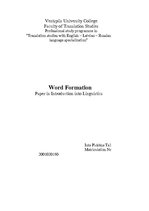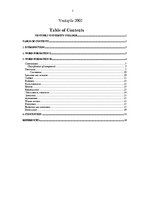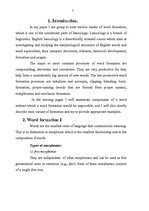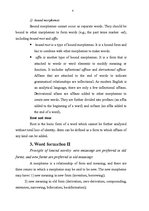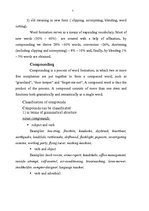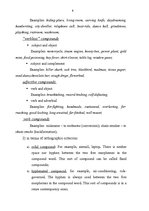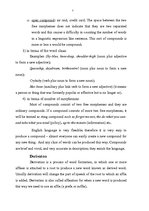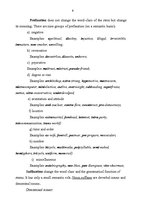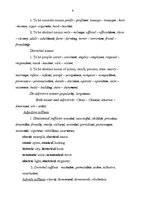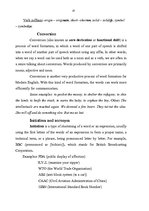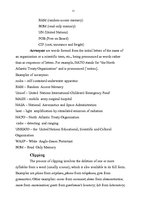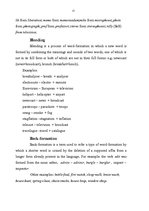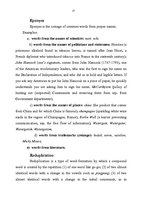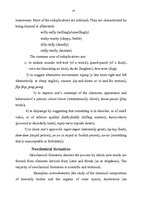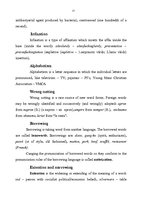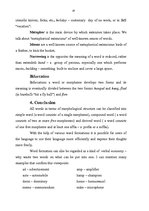-
Word Formation
| Nr. | Sadaļas nosaukums | Lpp. |
| Introduction. | 3 | |
| 1. | Word formation I | 3 |
| 2. | Word formation II | 4 |
| Conclusion | 16 | |
| References | 18 |
In my paper I am going to treat various modes of word formation, which is one of the constituent parts of lexicology. Lexicology is a branch of linguistics. English lexicology is a theoretically oriented course which aims at investigating and studying the morphological structures of English words and word equivalents, their semantic structures, relations, historical development, formation and usages.
The major or most common processes of word formation are compounding, derivation and conversion. They are very productive for they help form a considerably big amount of new words. The less productive word formation processes are initialism and acronym, clipping, blending, back-formation, proper-naming (words that are formed from proper names), reduplication and neoclassic formation.
In the ensuing pages I will enumerate components of a word without which a word formation would be impossible, and I will also shortly describe each variant of formation and try to provide appropriate examples.…
An extract: 'In the ensuing pages I will enumerate components of a word without which a word formation would be impossible, and I will also shortly describe each variant of formation and try to provide appropriate examples'. Word formation: compounding, derivation, conversion, initialisms and acronyms, clipping, blending, back-formation, eponyms, reduplication, neoclassical formation, infixation, alphabetism, wrong cutting, borrowing, extention and narrowing, bifurcation, etc.

